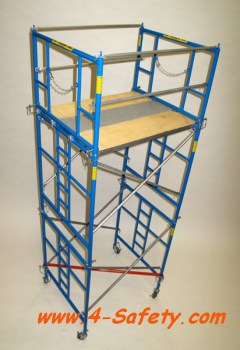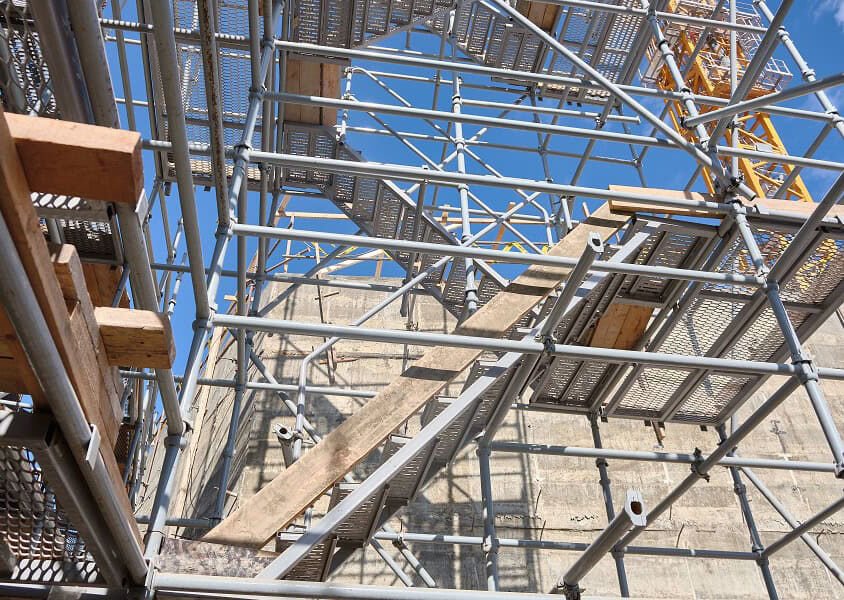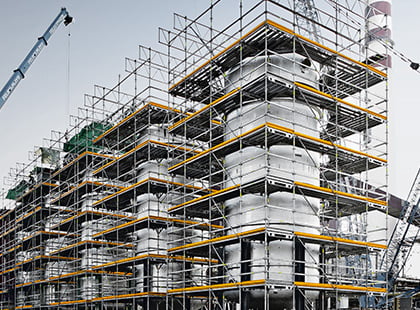Quality Scaffolding Surrey for Both Residential and Commercial Projects
Quality Scaffolding Surrey for Both Residential and Commercial Projects
Blog Article
Exploring the Different Kinds Of Scaffolding Made Use Of in Building Tasks
The construction industry relies heavily on numerous kinds of scaffolding to fulfill certain job requirements, each offering distinct advantages and applications. Conventional framework scaffolding provides a sturdy structure for general tasks, while suspended scaffolding is important for work on skyscraper frameworks. Various other choices, such as system and rolling scaffolding, satisfy efficiency and flexibility, respectively. The cantilever alternative confirms vital in city atmospheres where space is constrained. Recognizing the nuances of these scaffolding types is vital for enhancing security and efficiency on construction sites, triggering a better exam of their unique attributes and applications.

Standard Structure Scaffolding
Traditional framework scaffolding is among one of the most commonly utilized approaches in the building and construction industry as a result of its effectiveness and convenience. This system contains vertical and horizontal frameworks that are constructed to produce a stable system for materials and workers. The primary components consist of vertical messages, horizontal journals, and angled dental braces, which with each other supply a strong framework that can sustain substantial lots.
One of the crucial advantages of standard framework scaffolding is its flexibility to various building and construction jobs, ranging from domestic structures to huge industrial frameworks. The modular style enables simple setting up and disassembly, making it reliable for both long-lasting and temporary jobs. In addition, the system can be personalized in height and size, fitting various building layouts and website conditions.
Safety is paramount in scaffolding applications, and typical frame systems are outfitted with guardrails and toe boards to avoid drops and ensure employee defense. Furthermore, routine evaluations and adherence to security laws are crucial in maintaining the honesty of the scaffold. In general, standard frame scaffolding stays a fundamental option in the construction sector, supplying a dependable system for labor and enhancing overall job performance

Suspended Scaffolding
Put on hold scaffolding provides an unique service for building and construction jobs that require access to raised surface areas, particularly in scenarios where traditional structure scaffolding might be not practical. This sort of scaffolding is normally put on hold from the roof or upper degrees of a structure, using a system of systems, ropes, and pulley-blocks to develop a working room that can be changed to numerous elevations.
Among the key benefits of suspended scaffolding is its adaptability. It can be quickly rearranged or decreased to fit modifications in building needs, making it suitable for jobs such as home window installment, frontage job, and maintenance on high-rise structures. Furthermore, the very little impact of suspended scaffolding permits much better use ground area in city settings, where space is frequently limited.
Security is an essential factor to consider in the use of suspended scaffolding. Overall, suspended scaffolding supplies a effective and effective option for accessing hard-to-reach areas in different building and construction situations, improving both productivity and safety and security on site.
System Scaffolding
System scaffolding, often considered a modern service in the scaffolding industry, contains pre-engineered parts that can be quickly put together and adjusted for different building jobs. Scaffolding. This type of scaffolding is characterized by its modular style, which allows for adaptability and effectiveness on job sites, suiting various elevations and structural requirements
Normally made from high-strength steel or light weight aluminum, system scaffolding provides improved resilience and stability. The elements include vertical messages, straight journals, and diagonal dental braces, which adjoin securely, guaranteeing a robust framework. The layout frequently integrates standardized fittings, streamlining setting up and disassembly processes, thereby lowering labor time and expenses.

Rolling Scaffolding
Rolling scaffolding is a functional alternative to conventional fixed scaffolding, developed for wheelchair and ease of use on building sites. This sort of scaffolding consists of a system sustained by frameworks with wheels, enabling workers to easily relocate it as required. The wheelchair function significantly boosts performance, as it decreases downtime linked with setting up and taking apart dealt with scaffolding.
Typically created from light-weight materials such as light weight aluminum or steel, rolling scaffolding uses a durable yet portable option for jobs requiring frequent repositioning - Scaffolding. It is specifically helpful in tasks such as paint, drywall setup, and electrical job, where access to numerous heights and areas is needed
Safety is extremely important in rolling scaffolding style, with features such as securing wheels to avoid unplanned motion when in usage, and guardrails to secure workers from drops. Additionally, lots of models are flexible in elevation, suiting different project demands.
Cantilever Scaffolding

The style of cantilever scaffolding commonly entails making use of arms or brackets anchored to a structure or framework, allowing the platform to prolong outside safely. Safety and security is extremely important; hence, these scaffolds need to be engineered to endure environmental problems and different loads. Normal assessment and upkeep are important to guarantee structural stability and employee safety.
Cantilever scaffolding is preferred for its flexibility and reliable use of room, making it a prominent selection in metropolitan atmospheres where room restraints are typical. It assists in simpler access to high elevations, ultimately contributing to the general efficiency of construction tasks. Similar to all scaffolding kinds, proper training and adherence to security criteria are vital for employees using cantilever scaffolding.
Verdict
In verdict, the varied sorts of scaffolding utilized in building and construction projects each serve distinctive purposes tailored to details site demands. Typical frame scaffolding supplies security, while suspended scaffolding provides convenience for raised tasks. System scaffolding assists in fast assembly, and rolling scaffolding boosts movement for differing workplace. Cantilever scaffolding effectively addresses obstacles in metropolitan setups. Understanding these scaffolding types is crucial for optimizing safety and efficiency in building, ultimately adding to the successful completion of projects.
Standard framework scaffolding supplies a durable foundation for general jobs, while put on hold scaffolding is crucial for job on skyscraper structures.Rolling over here scaffolding is a versatile alternative to traditional fixed scaffolding, designed for mobility and convenience of usage on building best site sites. As with all scaffolding types, correct training and adherence to security requirements are vital for workers making use of cantilever scaffolding.
Typical framework scaffolding offers stability, while put on hold scaffolding provides versatility for raised tasks. System scaffolding helps with fast setting up, and rolling scaffolding enhances flexibility for differing work settings.
Report this page